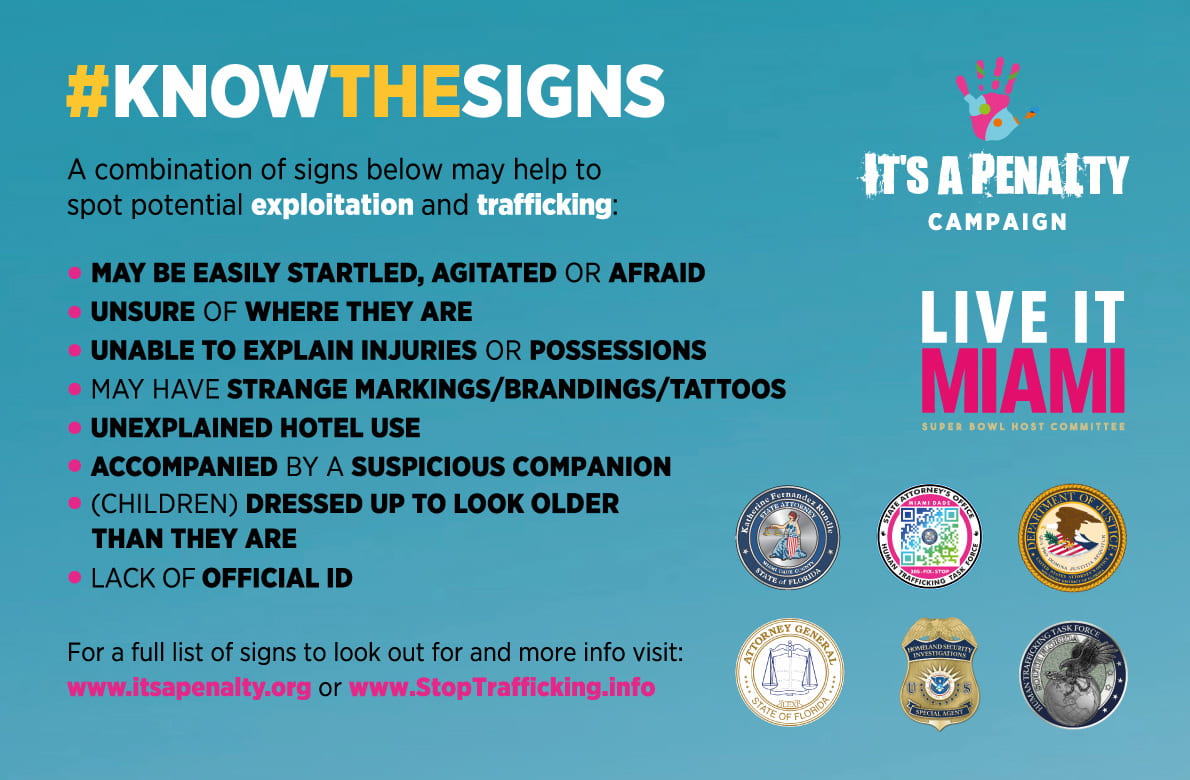Maya Mohan
North Bureau Chief
Human trafficking is the unlawful act of transporting people in order to benefit from their work or services. It’s dangerous, immoral, and the most typical form of forced labor and sexual exploitation. Many people do not think that they could ever be affected by human trafficking or even become a potential victim, but the truth is that human trafficking is occurring all over South Florida, right under our noses.
According to the U.S. Attorney’s Office Southern District of Florida, just recently in late September a leader of a human trafficking ring was sentenced to sixty years in federal prison, as well as ordered to pay over $14 million in fines. His name was William D. Foster and he has been running a human trafficking organization for over 20 years. This may leave you with the question of why victims have never tried to escape and speak out, but the answer is not that simple.
According to Mellissa Withers, Ph.D., M.H.S, many human trafficking leaders use a series of psychological techniques in order to hold their victims captive both physically and mentally. The first tactic is dehumanization, which makes victims believe that they aren’t worth anything. Human traffickers will manipulate their victims into thinking that there is no way they can escape and stay alive, they try to make them fear the world. Another tactic that they use is creating a cycle of dependence, where victims rely on their captors for everything that they need, and when they step out of line, they may lose it all. William D. Foster used this technique in order to maintain his human trafficking Ring for the past 20 years.
According to the U.S. Attorney’s Office, “if a victim attempted to leave, Foster would threaten financial ruin and other harm.” He would also require his victims to ask for permission before they were allowed to buy basic necessities like clothing. Human trafficking can happen anywhere, so it is very important to be aware of your surroundings and know the signs to spot if someone else may be a victim.
Since January is Human Trafficking Awareness Month, Broward College has hosted events on Central, South, and North Campus in order for students to receive basic safety information and become aware of the fact that Florida has one of the highest rates of human trafficking in the United States. Broward College has also taken steps to host an interactive webinar about “What you should know about human trafficking and sex trafficking in South Florida.”
The webinar was hosted by Katya Kross, a third-year law student, Dr. Victoria Brower, Associate Professor of Political Science and International Relations, as well as Tania Andre, CEO of the Mavuno Project, a non-profit organization dedicated to hosting mission trips to eradicate human trafficking. There are a variety of resources available to help survivors of human trafficking get back into the world such as The National Human Trafficking Resource Center, which operates 24 hours a day, 7 days a week.

